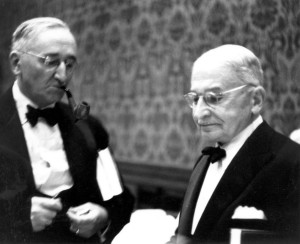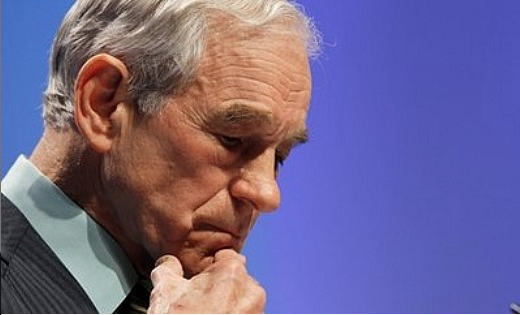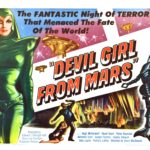#6. Ludwig Von Mises

The authority in libertarian thought, Ludwig Von Mises was the pioneer in the study of praxeology, or the study of human choice and action. He was firm in his beliefs in the superiority of the marketplace to government coercion in advancing prosperity. Milton Friedman recounted the humorous tale of Mises at a Mount Pelerin meeting where he stormed out, calling the room of classical liberals a “bunch of socialists.”
However, Mises was no anarcho-capitalist. He once referred to them as a:
“A shallow-minded school of social philosophers, the anarchists, chose to ignore the matter by suggesting a stateless organization of mankind. They simply passed over the fact that men are not angels. They were too dull to realize that in the short run an individual or a group of individuals can certainly further their own interests at the expense of their own and all other peoples’ long-run interests. A society that is not prepared to thwart the attacks of such asocial and short-sighted aggressors is helpless and at the mercy of its least intelligent and most brutal members. While Plato founded his utopia on the hope that a small group of perfectly wise and morally impeccable philosophers will be available for the supreme conduct of affairs, anarchists implied that all men without any exception will be endowed with perfect wisdom and moral impeccability. They failed to conceive that no system of social cooperation can remove the dilemma between a man’s or a group’s interests in the short run and those in the long run.”
Of course, libertarian anarchists love to claim Mises as their icon, but I wonder if they’ve read this: “Government as such is not only not an evil, but the most necessary and beneficial institution, as without it no lasting social cooperation and no civilization would be possible.”




